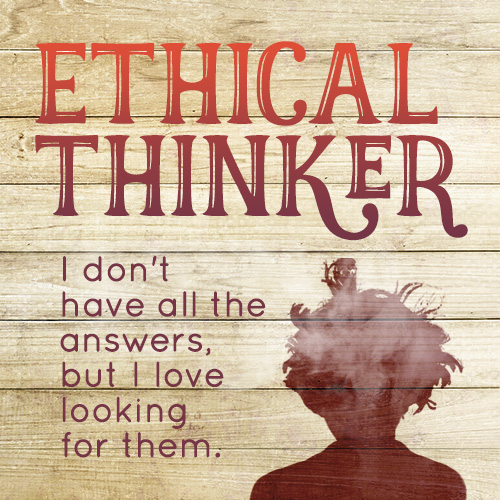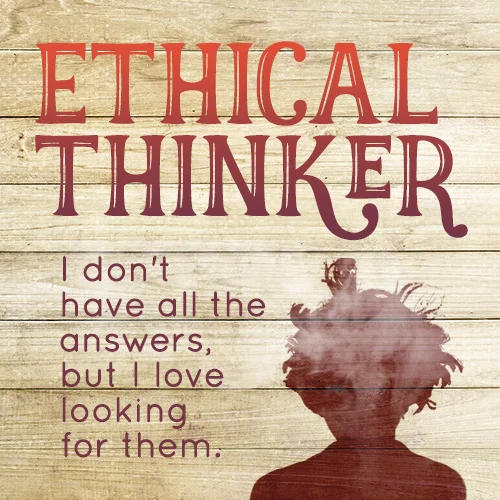My peanut gallery comments on Chatelaine's survey of Canadian women at 40ish years old
/Am I normal? I think this is a question that a lot of people ask themselves. Women especially. I've never really felt like I was normal, but I am still always curious how I compare to others. So when Chatelaine released a survey of Canadian women aged 35 to 45, I was keen to check out the results. After all, I turned 40 just a few months ago, making me exactly the demographic they were looking at in their "40(ish)" survey.
Before I talk about the results, let's take a closer look at who was surveyed. Here is the methodology from the fine print at the bottom (emphasis is mine):
METHODOLOGY
The survey, commissioned by Chatelaine and conducted by Abacus Data, was conducted online with 1,000 Canadian women aged 35 to 45 from September 2 to 7, 2015. A random sample of panelists was invited to complete the survey from a large representative panel of over 500,000 Canadians, recruited and managed by Research Now, one of the world’s leading provider of online research samples.
The Marketing Research and Intelligence Association policy limits statements about margins of sampling error for most online surveys. The margin of error for a comparable probability-based random sample of the same size is +/- 3.2%, 19 times out of 20. The data were weighted according to census data to ensure that the sample matched Canada’s population of women aged 35 to 45 according to age, educational attainment, household size, and region. Totals may not add up to 100 due to rounding.
I was glad to see that this was a representative panel of Canadians and not just a panel of Chatelaine readers. I liked the weighing of data according to certain demographic characteristics. On twitter, I asked Chatelaine about race/ethnic background and language. They told me that 19% of respondents identified as a member of a visible minority (this matches the Canadian population overall) and that the survey was conducted in English and French (so it isn't just a sample of English speaking Canadian women). All of those factors give the survey a lot more credibility than your average online poll or reader survey.
So let's look at some of the interesting or surprising results (and questions).
Money and Employment
The survey asked Canadian women about their employment status and how much money they make. The numbers seemed odd, so I asked whether all survey respondents were asked how much money they make or if only the employed respondents were asked the second question. Chatelaine said all survey respondents were asked that question.
Take a look at the answers to the two questions.
The first thing that jumped out at me was the fact that more than 30% don't really have paid employment (16% are not working right now, 15% are full-time moms) and others likely have limited earnings (12% are working part-time, 1% are students), yet only 21% are earning less than $30,000 per year. I don't understand how people who aren't working or aren't working much could be earning so much. Some of the full-time moms could be on paid maternity leave, but most of them would not be earning more than $30,000 per year. There are also many women with full-time minimum wage jobs in Canada, which would not add up to more than $30,000 per year (working full time at minimum wage in Canada yields an annual salary of between $20,000 and $23,000). Based on all those factors, I have trouble believing the results for how much money Canadian women make.
Sex and Relationships
Over 80% of Canadian women are very (51%) or fairly (31%) satisfied with their relationship and they stay in that relationship primarily for companionship (60%) or for the kids (21%). But Canadian women aren't having a lot of sex and seem generally okay with that.
Maybe that has something to do with the fact that these are the six sexiest Canadian men according to the survey (Really, Canada?).
Or maybe it is because we're so exhausted from all of the things on our plate (building our career, taking care of the kids, doing the chores). Not to mention the fact that we don't get to the gym as much as we should (29% feel the most guilty about this), don't feel good about our bodies (73% don't feel good about the way they look naked) and are depressed (61% have experienced depression or anxiety). Not exactly a libido enhancing combination.
The mom judgment isn't getting to us too much
There is a lot of hype about how much moms are judged by other moms, by the media and by society as a whole. That is either more hype than reality or we're doing a pretty good job of ignoring that judgment most of the time. When asked how good they are at various things, women were more likely to say they are good at taking care of the kids (30% gave themselves a score of 10/10 as a mom and 46% said they are doing pretty well) than building their careers (8% say 10/10, 39% say pretty well) or being an amazing friend (13% say 10/10 and 49% say pretty well).
Do we lie about our drinking?
On social media, there is a lot of "mommy needs a cocktail" and "wine-o-clock". But is that just a saying or are women actually drinking a lot to help get through their day-to-day challenges? Here is what the survey said about how much we drink.
I can understand that there are a lot of women who don't drink at all. This probably includes recovering alcoholics, people who don't drink for religious reasons, pregnant women, and people who just don't like alcohol. I was surprised, however, at the distribution among women who do drink. To me it seems normal to have a glass of wine at dinner and another one once the kids are in bed and then perhaps another one or two on a weekend. I know that is slightly above the maximum recommendations for women (10 drinks per week, no more than 2 per day), but it doesn't strike me as excessive or something people would be embarrassed to admit.
Ann Dowsett Johnston, an expert quoted in the Chatelaine survey said that women experience a lot of shame and blame when it comes to alcohol and that there's "no public acceptance of a women who's slurring, so no one's going to admit drinking too much." However, for most women, there is a long way between two drinks spaced out over an evening and slurring and falling over.
I wonder whether women were simply hesitant to put a check in the 11+ category because it was the highest category. If the categories had been 0, 1-3, 4-10, 11-20, and 20+, I wonder if the numbers would have been higher in the 11-20 category than they were in the 11+ category.
We're depressed and anxious
Sixty-one percent of survey respondents said they had experienced depression and anxiety. The survey then asks "have you taken anything for it" (56% said yes) and "have you ever been in therapy" (35% said yes).
But then I asked Chatelaine whether everyone was asked the questions about medication and therapy or just those who indicated they had experienced depression or anxiety and their answer surprised me. They said only those women who had experienced depression or anxiety were asked whether they had taken anything for it, but all respondents were asked whether they have ever been in therapy.
At face value, it looks like a lot more women are taking medication than using therapy, but with that explanation of the approach that was used, it is clear that the numbers are actually similar (35% therapy, 34% medication).
What about the men?
This survey tells us a lot about Canadian women at around 40, but what about the men? I see a lot of couples breaking up at around this age and wonder how big the chasm is between how women see themselves in the world and how men see themselves in it.
If a survey of this sort was going to go out to men, I would also want to see questions on things like childcare and household chores. Do they feel like they are pulling their weight? How much of the burden are they taking on. Does that include both the physical burden (being there with the kids, doing household chores) and the mental burden (knowing when the kids need a vaccine, knowing the names and e-mail addresses of the kids' friends' parents, knowing when the kids have tests at school and when their assignments are due, knowing what shoe size the kids wear)?
I think we would see a big difference between the burden women carry at this age and the burden that men carry.
But despite that, more than 2/3 of Canadian women at this age don't consider themselves feminists. I don't really know what to say about that, but my friend Natasha does. Go read her blog post feminist: especially on the hard days.
Your turn
What did you think when you read the Chatelaine survey? Did you feel like it was an accurate representation of you and your peers or were you surprised by the results?





